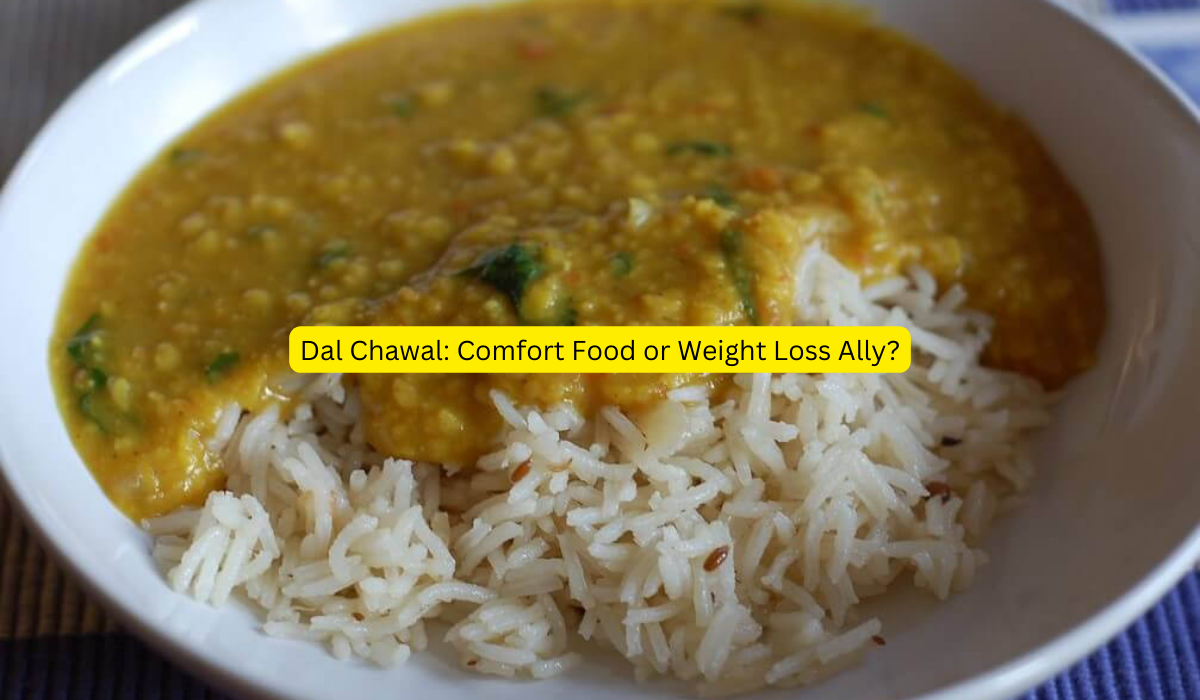Dal chawal, the humble Indian staple of lentils and rice, often evokes feelings of comfort and nostalgia. But can this seemingly simple dish actually be a friend on your weight loss journey? The answer, like most things in life, is not a straightforward yes or no. Let’s delve into the world of dal chawal, exploring its potential benefits and drawbacks for weight management.
Unveiling the Weight Loss Potential of Dal Chawal
Here’s why dal chawal might deserve a spot on your weight loss meal plan:
- Powerhouse of Protein: Dal, or lentils, is a vegetarian powerhouse packed with protein. Protein keeps you feeling fuller for longer, reducing cravings and helping you manage portion control. Imagine it like a tiny brick in your stomach – it creates a sense of fullness that prevents you from reaching for unhealthy snacks.
- Fiber Fiesta: Both lentils and rice (especially brown rice) contain fiber, a crucial nutrient for weight management. Fiber slows down digestion, keeping you feeling satisfied and promoting gut health. Think of fiber as a traffic cop in your digestive system – it regulates the flow of food, preventing blood sugar spikes and keeping you feeling energized.
- Low in Fat: Traditional dal chawal preparations are naturally low in fat. This makes them a perfect choice for those looking to reduce their overall calorie intake, a key factor in weight loss. It’s like choosing a healthy fuel source for your body – low in fat, high in nutrients to keep you running.
- Customizable and Versatile: The beauty of dal chawal lies in its versatility. You can adjust the type of dal, rice, and spices used to cater to your taste preferences and dietary needs. This variety helps you stay committed to your weight loss plan without feeling deprived.
The Other Side of the Coin: Potential Drawbacks
Before you start replacing every meal with dal chawal, here are some things to consider:
- Portion Control is Key: While inherently good for you, dal chawal can still contribute to weight gain if consumed in excess. Be mindful of your portion sizes and avoid adding unhealthy fats like ghee or excessive oil to your dish.
- Cooking Method Matters: The way you prepare your dal chawal can significantly impact its calorie content. Opt for healthier cooking methods like boiling or using minimal oil. Deep-frying your dal is like adding a layer of unhealthy fat bricks to your meal plan – not ideal for weight loss.
- Carbs in Rice: Let’s talk about rice. While brown rice is a healthier option than white rice, it still contains carbohydrates. Overconsumption of carbs can lead to weight gain. The key here is moderation and balance with other low-carb vegetables on your plate.
- Sodium Content: Some pre-packaged dals or ready-made mixes might be high in sodium. Excessive sodium intake can lead to bloating and water retention. Look for low-sodium options or prepare your dal from scratch for better control over the ingredients.
Finding the Dal Chawal Sweet Spot for Weight Loss
So, can dal chawal be part of a healthy weight loss plan? Absolutely! Here are some tips to maximize its benefits:
- Portion Control: Use smaller plates and bowls to avoid overeating.
- Focus on Protein-Rich Dals: Opt for dals like moong dal or masoor dal, which are higher in protein compared to others.
- Brown Rice is Your Friend: Choose brown rice over white rice for its additional fiber content.
- Spice it Up: Spices like turmeric, cumin, and chili powder not only add flavor but also have potential health benefits.
- Pair it with Veggies: Don’t forget the veggies! Include a generous serving of low-carb vegetables with your dal chawal for added nutrients and fiber.
Conclusion: Dal Chawal – A Balanced Approach
Dal chawal, when prepared and consumed thoughtfully, can be a valuable addition to your weight loss journey. Its protein and fiber content contribute to feelings of fullness and keep cravings at bay. However, remember that portion control, cooking methods, and overall dietary balance are crucial for success. So, the next time you crave a comforting meal, consider a healthy twist on dal chawal – it might just become your secret weight loss weapon!
Frequently Asked Questions
1. Is eating dal chawal for breakfast a good option for weight loss?
Dal chawal can be a healthy breakfast option for weight loss, especially if you choose the right ingredients and portion sizes. Opt for protein-rich dals like moong dal, brown rice for added fiber, and skip unhealthy fats like ghee. Pair it with a side of chopped vegetables for extra nutrients and a well-rounded meal. Remember, portion control is key – a smaller breakfast portion might be ideal compared to lunch or dinner.
2. Can vegetarians or vegans lose weight eating dal chawal?
Absolutely! Dal chawal is a naturally vegetarian dish, and vegans can easily adapt it by using vegetable broth instead of ghee and choosing dals that don’t require dairy products for preparation. The protein and fiber content in dal chawal can be very beneficial for vegetarians and vegans following a weight loss plan.
3. What are some healthy snacks I can have with dal chawal?
Dal chawal can be a filling meal on its own. However, if you’re feeling hungry in between meals, opt for healthy snacks like fresh fruits, nuts and seeds (in moderation), roasted vegetables, or a small portion of yogurt. Avoid sugary treats or processed snacks that can derail your weight loss goals.
4. I exercise regularly. Can dal chawal still help me lose weight?
Dal chawal can be a great post-workout meal for those who exercise regularly. The protein content in lentils helps with muscle repair and recovery after exercise. However, be mindful of your overall calorie intake throughout the day to ensure you’re creating a calorie deficit for weight loss.
5. Are there any health conditions where I should avoid dal chawal?
If you have any underlying health conditions, especially digestive issues or sensitivities to legumes, it’s best to consult a doctor or registered dietician before incorporating dal chawal into your weight loss plan. They can advise you on suitable portion sizes and potential adjustments to the recipe based on your specific needs.

